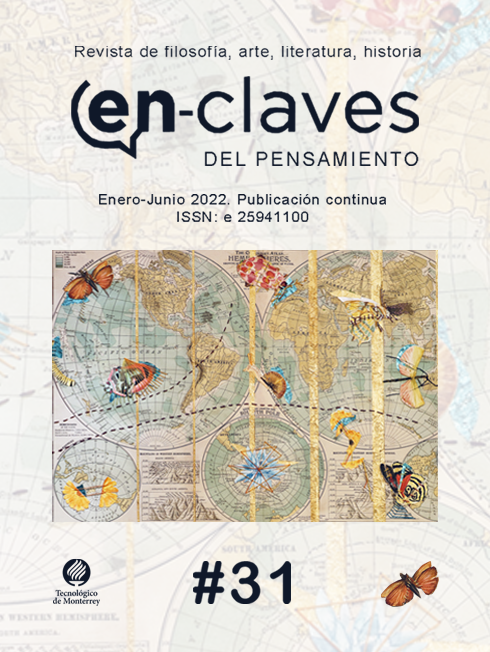Intertextualidad, parodia y pastiche en 'O Brother Where Art Thou?' de Joel y Ethan Coen
Contenido principal del artículo
La película O Brother where art thou de los hermanos Coen representa un ejemplo de una serie de elecciones constructivas con referencias hacia algunos elementos culturales generales y otros específicos de los Estados Unidos. Entre estas se encuentra una peculiar red intertextual que une la película con el poema épico de la Odisea: el vínculo entre las dos narraciones está establecido explicitamente por los dos autores y se manifiesta en una serie de elementos que entablan un divertido juego de reconocimiento para el espectador. Este tipo de operación de referencia constante se presta para elaborar un conjunto de reflexiones sobre un sentido contemporáneo y posmoderno de los géneros de la paródia y el pastiche, para definir el sentido de estos dos términos en el mundo creativo de nuestros tiempos y las finalidades expresivas de las relaciones entre tiempos y contextos diferentes.
Adam, Jean-Michelle. “Style et fait de style: un exemple rimbaldien”. En Molinié, Georges y Cahné, Pierre-Alain (comps.), Qu’est-ce que le style. Paris, PUF, 1994.
Allen, William Francis, Charles Pickard Wale y Garrison McKim. Slave songs of the United States. Nueva York: A. Simpson & Co, 1867.
Ben-Porat, Ziva. “Method in Madness: Notes on the Structure of parody, based on MAD TV Satires”. Poetics Today, núm.1 (1/2 1979): 245-272.
BBC. “O Brother, Why Art Thou So Popular?”. BBC NEWS, 27 de febrero de 2002. news.bbc.co.uk/2/hi/entertainment/1845962.stm.
Bremond, Claude, Logique du récit. Paris: Éd. Du Seuil, 1973.
Cant, John. “Homer in Tishomingo - Eclecticism and cultural transformation in the Coen brothers’ O Brother, where art Thou?”. Comparative American studies - An International Journal, 5, núm. 1 (2007): 63-79.
Coen, Joel, director. O Brother, here art Thou? Buenavista Film Distribution. 2000. 1:46hrs.
Coen, Joel, director. Barton Fink. 20th Century Fox. 1991, 1:56hrs.
Coughlin, Paul. “The Past Is Now: History and The Hudsucker Proxy”. En Mark T. Conard (comp.), The Philosophy of the Coen Brothers, 195-210. Lexington: The University Press of Kentucky, 2009.
Dentith, Simon. Parody. New York: Routledge, 2000.
Doob, Nick, Chris Hegedus, D. A.Pennebaker, directores. Down from the Mountain. Mike Zoss Distributions, 2000, 1:38hrs.
Garner, Bianca. “O Brother, where art Thou? A Coen Brothers Odyssey”. Filmotomy (25 de Mayo de 2018). filmotomy.com/ o-brother-where-art-thou-a-coen-brothers-odyssey/.
Gaughran, Richard. “‘What Kind of Man Are You?’ The Coen Brothers and Existentialist Role Playing”. En Mark T. Conard (comp.), The Philosophy of the Coen Brothers, 227-242. Lexington: The University Press of Kentucky, 2009.
Genette, Gérard. Palimpsestes. Paris: Seuil, 1989.
Gignoux, Anne-Claire. “D’une pratique de ‘grossissement’ caricatural: le pastiche”. En Laure Himy-Piéri, Jean Castille, Francois y Laurence Bougault (comps.), Le style, découpeur de reel, 191-205. Rennes: Presses universitaires de Rennes, 2014.
Gutiérrez Estupiñan, Raquel. “Estudio introductorio”. En Raquel Gutiérrez Estupiñán y Adriana Velasco Marín (comps.), Imágenes intertextuales. Puebla: Benemérita Universidad Autónoma de Puebla, 2015.
Harries, Dan. Film Parody. London: British Film Institute, 2000.
Hoesterey, Ingebor. Pastiche: cultural memory in art, film, literature. Bloomington: Indiana University Press, 2001.
Householder, Fred W. Jr. “Parodia”. Classical philology, núm. 39 (1944): 1-9.
Hughes, Joseph J. “O Dinner, where art Thou?”. En Classical association of the Midwest, West, and South conference. no publicada (abril, 2003).
Hutcheon, Linda. A Theory of Parody: The Teachings of Twentieth-Century Art Forms. Chicago: University of Illinois Press, 2000.
Joyce, James. Ulysses. Paris: Shakespeare and Co, 1918.
Marmontel, Jean-François. Éléments de literature, 4. Paris: Née à La Rochelle, 1787.
Mcfarland, Douglas. “Philosophies of Comedy in O Brother, where art Thou?” En Mark T. Conard (comp.), The Philosophy of the Coen Brothers, 41-54. Lexington: The University Press of Kentucky, 2009.
Menaker, Daniel. “Arts in America; A film score Odyssey down a quirky country road”. New York Times, 30 de Noviembre de 2000. www.nytimes.com/2000/11/30/movies/arts-in-america-a-film-score-odyssey-down-a-quirky-country-road.html.
Mottram, James. The Coen Brothers: The Life of the Mind. Londres: B. T. Batsford, 2000.
Pfister, Manfred. “European poststructuralism and American postmodernism, or ‘how postmodern is intertextuality?’”. Actas del XIII Congreso Nacional de AEDEAN: influencias e intercambios culturales, lingüísticos y literarios entre Norteamérica y Gran Bretaña e Irlanda en el siglo XX, 63-90. Tarragona, 18-20 de diciembre de 1989, 1991.
Plett, Heinrich (comp.). Intertextuality. Berlín y Nueva York: Walter de Gruyter, 1991.
Pollio, David M. “Baptizing Odysseus: ‘O Brother, where art Thou?’ and Homer’s ‘Odyssey’”. The Classical Outlook, 85, núm. 1 (otoño, 2007): 23-27.
Ricoeur, Paul. Oneself as Another. Traducido por Kathleen Blarney. Chicago: The University of Chicago Press, 1992.
Riffaterre, Michael. “Le tissu du texte. Du Bellay, Songe, VII”. Poétique: Revue de Théorie et D'analyse Littéraires, núm. 34 (1978): 193-203.
Romney, Jonathan. “Double vision”. The Guardian, 19 de Mayo de 2000. https://www.theguardian.com/film/2000/may/19/culture.features
Siegel, Janice. “The Coens’ O Brother, where art Thou? and Homer’s Odyssey”. Mouseion: Journal of the Classical Association of Canada, 7 (2008): 213-245.
Sophie. ‘O Brother, where art Thou: Film as Comparative Mythology’. HopkinsCinemAddicts, 28 de Enero de 2013. Acceso el 8/9/2021. hopkinscinemaddicts.typepad.com/hopkinscinemaddicts/2013/01/o-brother-where-art-thou-film-as-comparative-mythology.html.
Theweleit, Klaus. “Artisten im Fernsehstudio, unbekümmert”. Die Zeit, 25 de Agosto de 1995, 13-15.
Toscano, Margaret. ‘Homer meets the Coen brothers: Memory as artistic pastiche in O Brother, where art Thou?’. Film & History: An Interdisciplinary Journal of Film and Television Studies, 39 núm. 2 (2009): 49-62.
Walcott, Derek. The Odyssey: A Stage Version. Nueva York: Macmillian, 1993.
Walcott, Derek. Omeros. Farrar: Straus and Giroux, 2014.
Detalles del artículo

Esta obra está bajo una licencia internacional Creative Commons Atribución-NoComercial 4.0.












